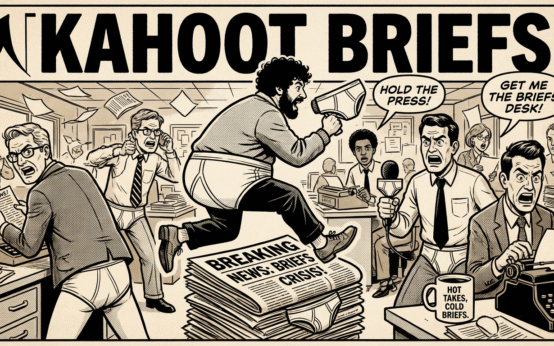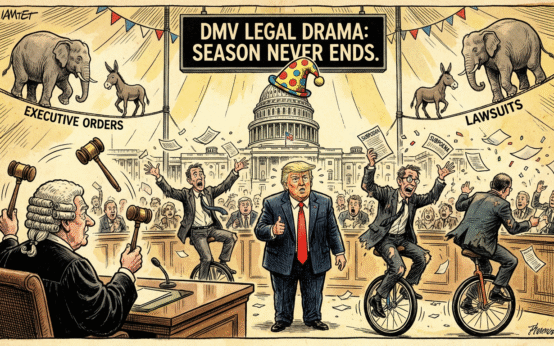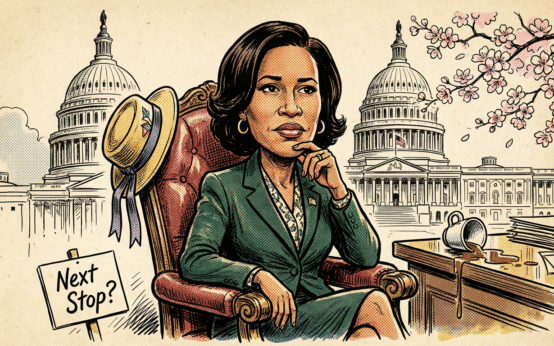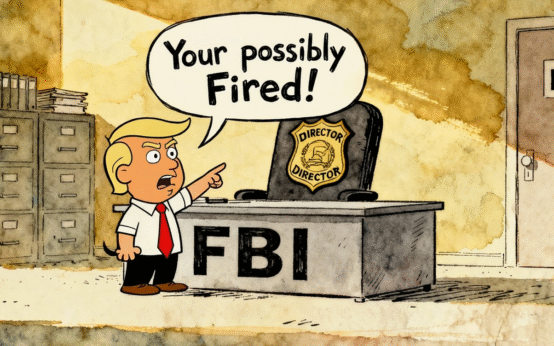🧑⚖️ The Supreme Court vs. Trump’s Presidential Power Playbook
Subtitle: “You Can’t Spell ‘Executive Privilege’ Without ‘Extra Privilege’”
Word Count: ~1,100 | SEO Focus: Supreme Court, Trump, Presidential Power, Washington D.C., DMV Politics
⚖️ Overview: The Court Is In Session, and So Is the Drama
The U.S. Supreme Court kicked off its 2025-2026 term with a docket that reads like a political thriller written by a law student who binge-watched House of Cards and The Apprentice back-to-back. At the center of the legal maelstrom? Former President Donald J. Trump and his increasingly bold claims about presidential immunity.
Yes, folks, Trump is back—not just on the campaign trail, but in courtrooms across America like he’s trying to earn frequent flyer miles for legal appearances.
🧠 What’s the Big Legal Beef?
Trump’s legal team is arguing that a president should be immune from prosecution for actions taken while in office—even if those actions include, say, trying to overturn an election or hoarding classified documents like they’re Pokémon cards.
This term, the Supreme Court is expected to weigh in on:
- Whether Trump can be prosecuted for his role in the January 6th Capitol riot
- Whether presidential immunity extends to criminal charges
- And whether the phrase “no one is above the law” is just a cute slogan or an actual rule
🏛️ The Stakes: Higher Than a Georgetown Rent Check
This isn’t just about Trump. The Court’s decision could redefine the limits of presidential power for generations. If the justices side with Trump, future presidents might get a legal “get out of jail free” card—perfect for Monopoly, terrible for democracy.
And let’s not forget: this is all happening in Washington D.C., where the only thing more common than a motorcade is a constitutional crisis.
🧑⚖️ The Justices: Nine People, Infinite Headaches
Let’s break down the cast of judicial characters:
- Chief Justice John Roberts: Still trying to convince America the Court isn’t political while dodging more leaks than a D.C. apartment.
- Justice Clarence Thomas: Under scrutiny for ethics issues, but still showing up like it’s just another Tuesday.
- Justice Ketanji Brown Jackson: The newest justice, bringing fresh energy and the patience of a DMV commuter stuck on I-495.
- Justice Samuel Alito: Known for his conservative rulings and his ability to write opinions that sound like they were ghostwritten by a Federalist Society intern.
The Court is ideologically tilted 6-3 in favor of conservatives, which means Trump’s arguments might get a warmer reception than they would in, say, a civics class.
🧨 The Legal Arguments: Immunity or Impunity?
Trump’s lawyers argue that prosecuting a former president for official acts would set a dangerous precedent. Critics argue that not prosecuting a former president sets an even worse one—like saying, “Sure, you can rob the bank, just make sure you do it while wearing a sash that says ‘President.’”
Legal scholars are split:
- Pro-Immunity Camp: Says the president needs broad powers to act decisively without fear of legal retaliation.
- Anti-Immunity Camp: Says that’s how you get dictators, not presidents.
🗳️ The Political Fallout: 2024, 2025, and Beyond
This legal battle is unfolding as Trump campaigns for a second term. If the Court rules in his favor, it could embolden him and future presidents to push the boundaries of executive power.
If they rule against him? Expect a flurry of Truth Social posts, a few rallies, and possibly a new line of “Witch Hunt 2025” merch.
📍 DMV Angle: Why This Matters Locally
For folks in the DMV (D.C., Maryland, Virginia) area, this isn’t just national news—it’s local drama. The Supreme Court is literally down the street from the Capitol, and the ripple effects of these rulings will be felt in every federal agency, law school, and political bar from Adams Morgan to Arlington.
Plus, if you’re a D.C. resident, you already know what it’s like to live under federal power without full representation. Now imagine if that power came with immunity. Yikes.
🧩 What Comes Next?
The Court is expected to hear arguments this term, with a decision likely by June 2026. Until then, legal analysts, political junkies, and late-night comedy writers will be watching closely.
And let’s be honest: if the Court rules that presidents can’t be prosecuted for crimes committed in office, we might need to update the Constitution… or at least the intro to Law & Order.
🧵 TL;DR (Too Legal; Didn’t Read)
- Trump is arguing that he’s immune from prosecution for actions taken while president.
- The Supreme Court will decide whether that’s true.
- The ruling could reshape presidential power forever.
- The DMV area is ground zero for this legal drama.
- No matter what happens, it’s going to be a wild term.
📢 Final Thought: “With Great Power Comes Great Legal Ambiguity”
Whether you’re a constitutional scholar or just someone who likes watching democracy teeter on the edge like it’s a Netflix thriller, this Supreme Court term is must-see TV. Or at least must-read-C-SPAN-transcripts.
So buckle up, DMV. The legal rollercoaster is just getting started—and this one doesn’t have seatbelts.



 Supreme Court Ruling on Digital Privacy Rights
Supreme Court Ruling on Digital Privacy Rights  Trump’s Executive Orders: A DMV Guide to America’s Legal Soap Opera
Trump’s Executive Orders: A DMV Guide to America’s Legal Soap Opera  Mayor Bowser Bows Out: Washington D.C. Prepares for a Political Plot Twist
Mayor Bowser Bows Out: Washington D.C. Prepares for a Political Plot Twist  White House Denies Trump FBI Director Firing Rumor | Fact-Check
White House Denies Trump FBI Director Firing Rumor | Fact-Check  Supreme Court to Hear Landmark Case on Digital Privacy
Supreme Court to Hear Landmark Case on Digital Privacy